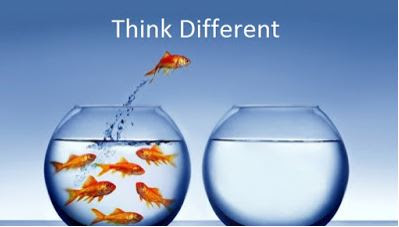Productivity vs. Efficiency
I am constantly surprised by the confusion in the business world between Productivity and Efficiency. So let us take those concepts and explore them.
Productivity[1]: it is simply how much output we produce with a given input. It is regarded as a stimulus response model that an input causes an output. For purposes of simplicity we can say that it is output/input. It is a relationship between resources that come into an organization during a given period of time and outputs generated with those resources. Productivity answers a very simple question: by putting 1 USD of investment in, how many dollars came out?
There could be several ways to measure it. For example: # of customers served per employee, $ sales revenue per sq-ft of store area, etc. One of the most common measures is the ROI (Return on Investment): this measures for every USD of investment how many dollars were returned. The goal is to do more with less, and getting the job done with a smaller budget. Consider the impact on a country level. GDP x capita measures how much output every inhabitant produces on a macroeconomic level. This has absolutely nothing to do with efficiency, or with a company’s situation.
There are many measures that impact productivity: labor productivity, capital/equipment productivity, raw material productivity. Let us take another example. The process Outputs would be the number of bottles produced and sold, whereas Inputs are Labor, Equipment, Raw materials. Let us say that:
Week1: 1000 bottles produced and sold at 20 USD each gives an output of = USD 20,000.
Week2: 1000 bottles produced and sold at 15 USD each gives an output of = USD 15,000.
Output has decreased by 25%; Input has remained the same. Productivity has decreased by 25%.
Efficiency[2]: efficiency is performing in the best possible manner with the least resources, time and efforts. It is about doing things in the right manner, focusing on the processes it is defined as the extent to which time is well used for the intended task. It is a measurable concept, and can be measured in units of: time, effort and cost. It is very easy actually to visualize efficiency. How many sit-ups can you do per minute? How many pages can you read an hour? But most importantly it should be used for work reasons. For example, how many tickets or issues is your team resolving per month? How about individual performances?
Managers should never lose sight of efficiency metrics. But most importantly, never confuse productivity with efficiency. While efficiency focused on producing in a fast manner, productivity focuses on the generation of the value itself. What is efficiency without value added? The input transformed into output, and the relationship between the two, will give you the productivity. But if that input can be produced in an efficient manner, your productivity will actually increase as well. To boost productivity, increase output but also work more efficiently to reduce input.
















